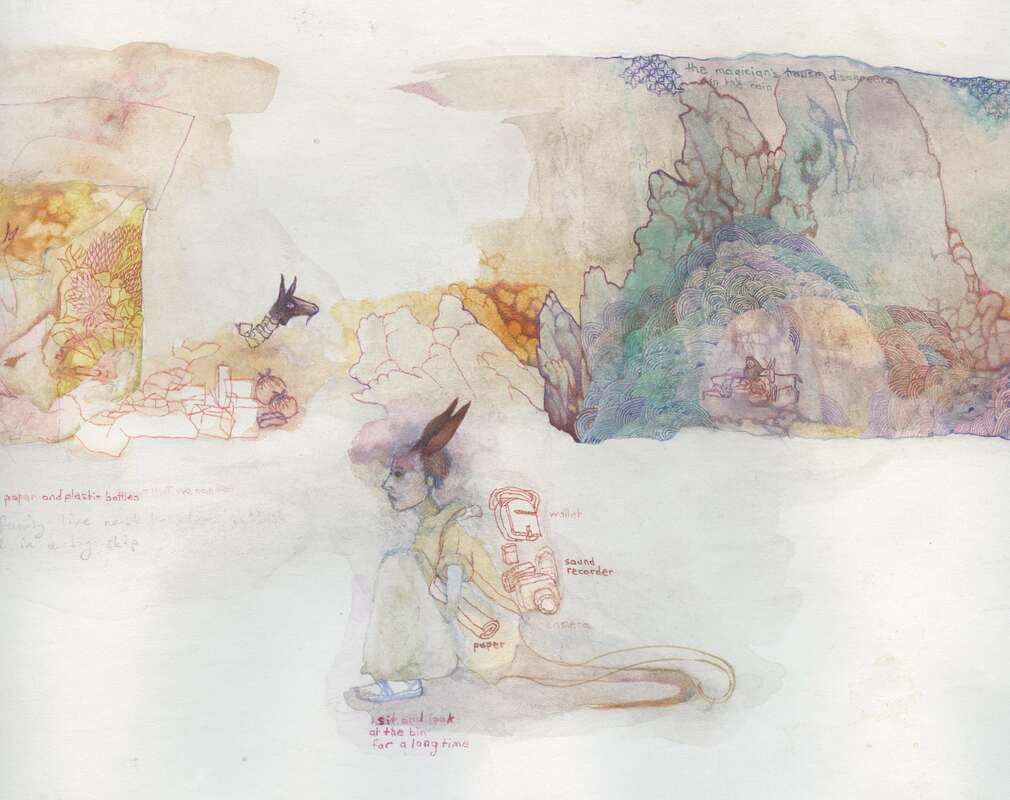2010
Relli Kahane (Quilt Story)
Relli Kahane (Quilt Story)
Relli Kahane (Quilt story). Detail. Watercolour on paper. 120cmx25cm (entire). 2010.
Relli Kahane or Quilt Story is a little scroll focusing on a family in Lahore. I met and became friends with the mother of the family, Safia when I was living nearby. I began visiting her often and though we didn't speak each other's language, somehow it didn't matter. Safia and her family lived on the side of the road in a jhumpiri (tent). In the tent we would drink tea, watch the children play with the dog, cook, sit by the fire, and ward off the cold and the endless rushing of cars.
The Pakhiwas are descended from Punjabi and Sindhi tribal peoples. Their quilt culture is complex and beautiful, and they are geniuses at repurposing waste materials. As nomadic people, they were written out of Pakistan's constitution. Most have no land, papers, or ability to access benefits. Most survive on garbage sorting and/or hazardous and horrible kinds of jobs. Over the years I have witnessed Safia's family endure incredible prejudice, oppression, and exploitation.
Since 2010 I have continued to visit and stay in contact with Safia and her family, and paintings about them often resurface in my work.
Relli Kahane or Quilt Story is a little scroll focusing on a family in Lahore. I met and became friends with the mother of the family, Safia when I was living nearby. I began visiting her often and though we didn't speak each other's language, somehow it didn't matter. Safia and her family lived on the side of the road in a jhumpiri (tent). In the tent we would drink tea, watch the children play with the dog, cook, sit by the fire, and ward off the cold and the endless rushing of cars.
The Pakhiwas are descended from Punjabi and Sindhi tribal peoples. Their quilt culture is complex and beautiful, and they are geniuses at repurposing waste materials. As nomadic people, they were written out of Pakistan's constitution. Most have no land, papers, or ability to access benefits. Most survive on garbage sorting and/or hazardous and horrible kinds of jobs. Over the years I have witnessed Safia's family endure incredible prejudice, oppression, and exploitation.
Since 2010 I have continued to visit and stay in contact with Safia and her family, and paintings about them often resurface in my work.
